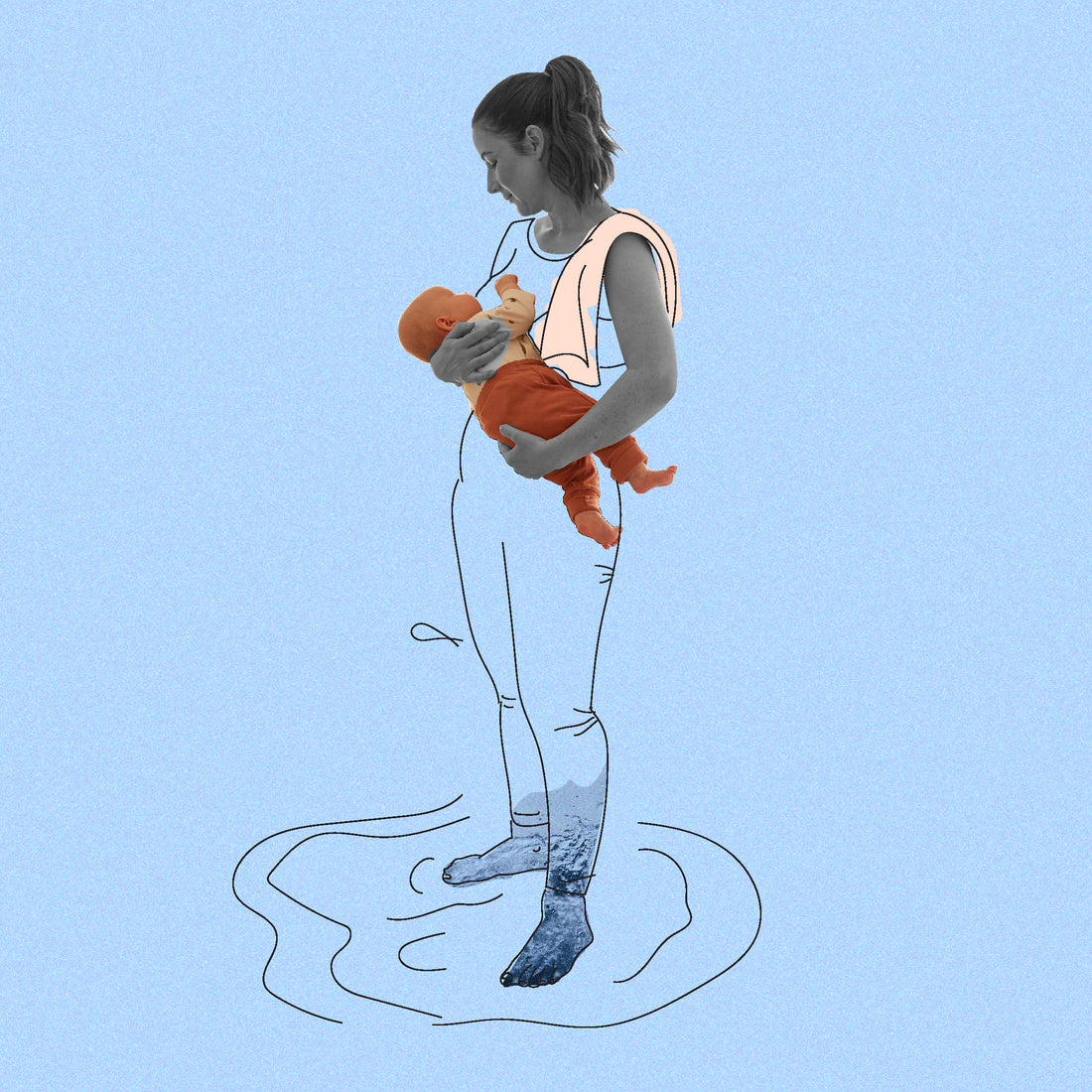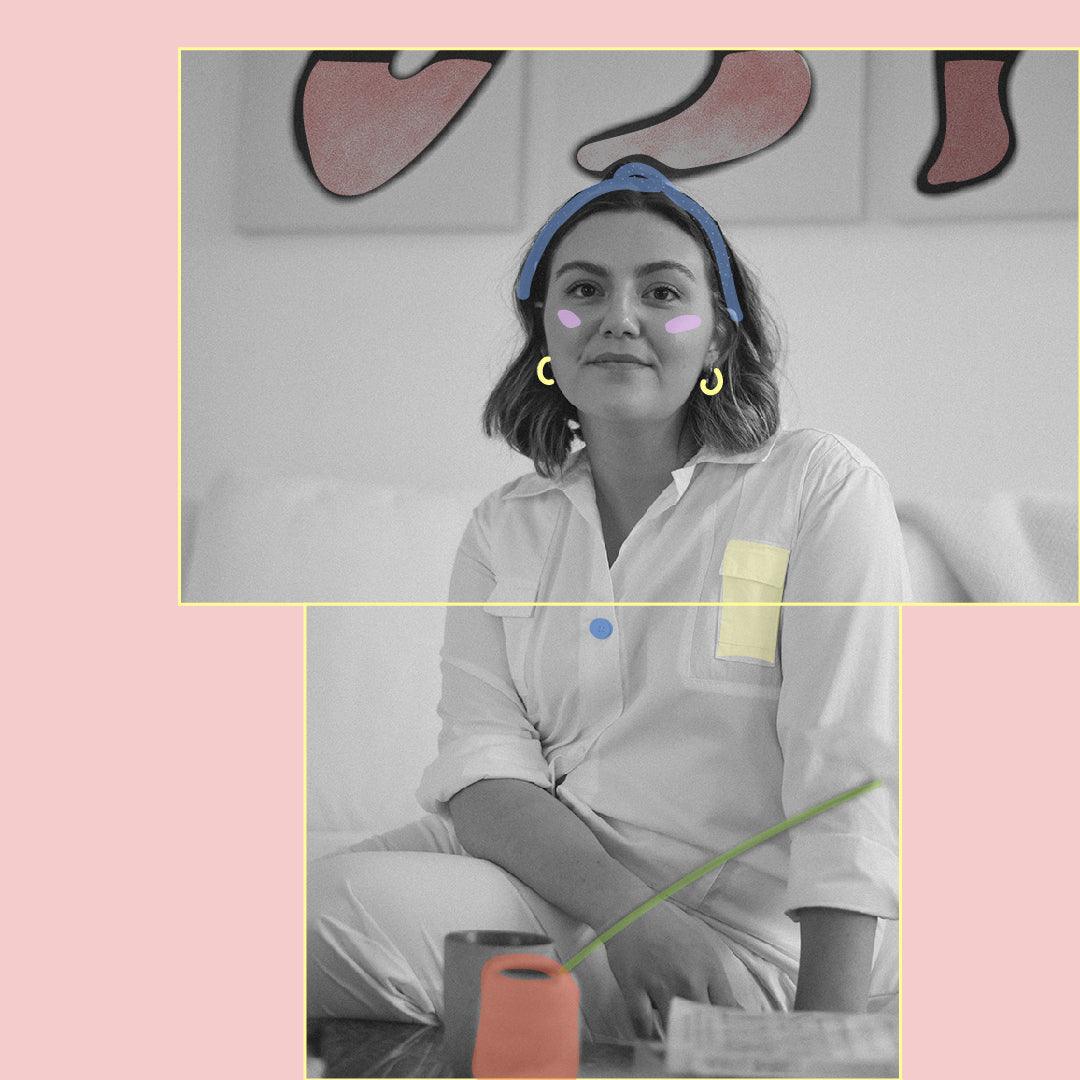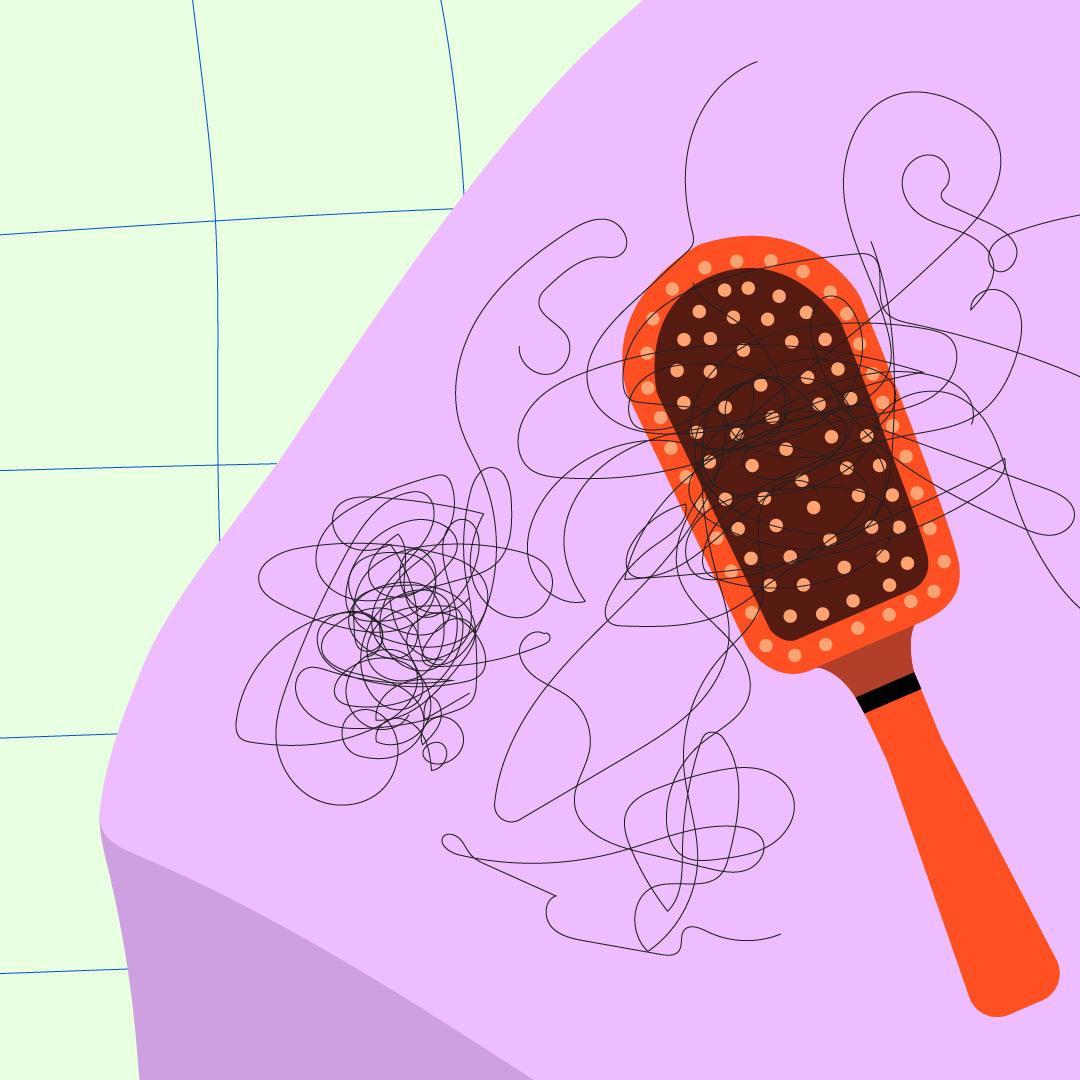Fatigue, anxiety, overwhelm — just because it’s common doesn’t make it normal.
When I was 14 months postpartum with my first son, I walked into my doctor’s office and burst into tears the second she asked me how she could help. “I feel empty on the inside” was my response through my sobs. I knew something was wrong, but I didn’t know what, so I asked for “all the tests” to find out. The tests all came back normal, and I felt like both a fraud and a failure: Was it all in my head? Was this just me “not coping” with motherhood? I’d run entire staffs, but I couldn’t manage a small human?
A month later I heard Dr. Oscar Serrallach speak at an event, and the lights came on inside of me: I wasn’t “not coping”; I had postnatal depletion.
What is Postnatal depletion?
Dr. Serrallach, is Byron Bay based GP with a special interest in postpartum care, author of The Postnatal Depletion Cure and passionate advocate for women’s health. He coined the phrase “postnatal depletion” after witnessing a never-ending stream of mothers come through his clinic with the same symptoms: perennial baby brain; chronic exhaustion, overwhelm… the list goes on. There wasn’t a word for everything he was seeing — something that encompassed the physical, mental and emotional drain that modern mothers were experiencing — and so it became postnatal depletion.
But, he didn’t just give it a name, rather than doing what everyone one before him had done and justifying it as “just a part of motherhood”, he began to look into the why, in search of a way to do motherhood better, and hopefully find a cure. Here, Dr. Serrallach shares his findings with us.
What are the symptoms of postnatal depletion?
The thing about postnatal depletion is that it doesn’t just hit on the physical, it is cognitive and emotional too. That said, the key symptom is in fact a physical one: fatigue. “Extreme fatigue is different to just being tired in that it impairs your ability to function day to day,” says Dr. Serrallach. The other key difference to tiredness is that fatigue can’t be cured with one (or even a few) good nights’ sleep.
Depletion is also different to postnatal depression in that with depletion a mother still has good moments amongst the tough, and with depression they cannot see the light or the joy. “While depression and depletion are related to different degrees of neuro inflammation, depression is a more clinical diagnosis. With depletion, I was seeing so many mothers who didn’t tick all the boxes of a clinical diagnosis, but there was still something there — it just didn’t have a name yet,” says Dr. Serrallach.
Some of the other symptoms of postnatal depletion include hypervigilance (being overly focussed on small details, always being on the lookout for things), feelings of anxiety and overwhelm, constant (and never-ending) brain fog, and a lack of stress resilience aka: not being able to cope with stress as easily as before. There’s even a symptom called nominal Aphasia which is where you have difficulty recalling nouns. Yes, that’s a real thing, and there’s a real reason why.
If you’re sitting there nodding along or thinking “yeah but all mum’s are tired”, Dr. Serrallach is quick to point out that “just because something is common, does not make it normal”. In other words: we deserve better than to be told that it’s just part of motherhood and we need to suck it up. Because what is happening to us isn’t a made up thing — it’s science, and it stems from your brain. “ Most of the issues that occur to mothers postnatally are neuro-inflammatory,” says Dr. Serrallach, “which is why it can't be corrected with just sleep, because it’s much more than that.”
“There are both more hormones and more brain changes involved in matrescence than adolescence. And, just like you don’t just suddenly become an adult after puberty, you don’t become a mother at the birth of a child. It’s a learned skill and takes a mother a couple of years to learn and get used to the mother brain.”
How does Postnatal depletion occur?
Here’s where we need to dive a little deeper: because in order to understand what is happening to us with postnatal depletion, we need to first understand what happens to our brains when we become pregnant and enter motherhood. “Mothers undergo a neuro-hormonal remodelling of the brain with ‘upgrades’ to the IQ, EQ, smell, taste, social reasoning and facial recognition,” says Dr. Serrallach. The only other time in your life that you undergo this neurogenesis and hormonal changes is in adolescence – but you only go through that once — and it’s not as intense as it is in matrescence. “There are both more hormones and more brain changes involved in matrescence than adolescence. And, just like you don’t just suddenly become an adult after puberty, you don’t become a mother at the birth of a child. It’s a learned skill and takes a mother a couple of years to learn and get used to the mother brain,” says Dr. Serrallach.
While on the physical side, both our bodies and our brains are undergoing a complete seismic transformation, there are also a bunch of societal and cultural factors at play too. A big part of this is that we don’t have the support networks that were once available in intergenerational living (where grandparents lived in the same home and helped with child rearing) and that we don’t plan for our postpartum like we do our pregnancies. “The rates of perinatal mood disorders are going up, and there are multiple factors at play here including, lack of support, personal expectations of motherhood falling short, lack of postpartum planning and ignoring your biology. We don’t give ourselves permission to rest and seek support,” says Oscar.
But perhaps the most poignant is what Dr. Serrallach sees it as a sort of masculinisation of motherhood. “I think we’ve brought in a lot of the male principles around motherhood like ‘if it’s not working, try harder’, blame yourself, soldier on, suck it up and move on. The fact that we still idolise the concept of the super mum really highlights that.”
At the crux of it, we’re so busy trying to do it all and be it all that self-care falls by the wayside and we ignore the signs that things aren’t right, writing it off as “just mum life” and not only that, one we chose, so we feel like we’ll be chastised for complaining.
“The rates of perinatal mood disorders are going up, and there are multiple factors at play here including, lack of support, personal expectations of motherhood falling short, lack of postpartum planning and ignoring your biology. We don’t give ourselves permission to rest and seek support.”
So, what’s the fix?
Not surprisingly, there is no fast fix. In order to find a solution, many of the moving parts need to change. One part of it is supplement support to replace the loss of macro and micronutrients that are contributing to you feeling this way, because fun fact: when you’re pregnant and breastfeeding, the baby gets the first serve and you/ your body get what’s left over.
Outside of supplementation and you know, completely reshaping society (and our own) perception of motherhood, Dr. Serrallach offers these practical things you can do both pre and post baby that will help you respond, rather than react to the things that come your way.
Create a postnatal plan: Have the discussion before your baby arrives, and have it include how you’ll get both support and self-care. Postpartum planning is as, if not more, important than any pregnancy or birthing plan.
Get the support: “The difference between help and support is that support is preemptive, and help is reactive. The life vest is “support”, there for you before you even showed up, whether you take it or not. The lifeguard is help, there for you when you’re drowning,” says Dr. Serrallach. Whatever that looks like for you, support is vital because you need the downtime, and you need to prioritise that for your own health. This could mean anything that helps lighten the workload, from swapping frozen meals with friends so you don’t always need to cook, to outsourcing a cleaner, or asking friends to mind the baby while you sleep.
Prioritise nervous system practises: “Minute for minute, dollar for dollar practises like yoga nidra or guided meditation are the best bang for buck in relation to helping your nervous system stabilise,” says Dr. Serrallach. He suggests incorporating nervous system practices into your weekly routines.
Tiny things often: This includes mindfulness moments, like concentrating on the taste of the tea you’re drinking to help you feel centered; getting outside in nature, or taking four breaths in and out (focusing especially on the slow, even out breath which switches on the parasympathetic nervous system). Doing these frequently (more than 20 times a day) can really impact your state of calm.
Small things every day: One 20-30 minute small thing a day like taking a tiny nap, doing some Yoga Nidra or guided meditation (Insight Timer has some excellent free versions).
Big things once a week: One 60-90 session of whatever fills your cup once a week. Whether that’s a long meditative walk, a massage, yoga, or reading a book, whatever makes you feel relaxed and recharged - do that.
Remember these things are a gift to your family, not just you. Because, as Dr Serrallach says, “If mothers aren’t good, no one is good.”


























